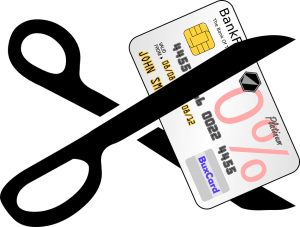Inflation has risen again, hitting a new 39-year high of 8.1%. The Bank of Canada has also increased policy interest rates by 100 basis points. With everyday goods continuing to rise, many are struggling to keep afloat. Canadians in need will likely seek loans to ensure they can keep their homes and provide for their families. These uncertainties will lead many to seek help. If they go to a typical lender this normally wouldn’t be an issue. However, many companies will provide high-interest loans to those who cannot pay them back. These lenders seek only to benefit themselves financially. These are known as predatory loans and are often in the form of payday lenders.
Predatory lenders loan money to those with low income or bad credit. Still, anyone can fall victim to predatory lending if you don’t know the warning signs. This post will cover the most common signs of predatory, high-interest, unsecured loans and what to do if you find yourself in debt because of one.
How predatory lending works
Predatory lenders often take advantage of borrowers’ circumstances or lack of financial knowledge.
Predatory lending puts borrowers at risk, especially those with few credit options. These loans are offered to those with inconsistent income, leading to regular needs for fast cash to meet ends. Those with low credit scores or less access to education are also prime targets.
Predatory lenders will target communities where few other credit options exist. This makes it more challenging for borrowers to shop around. Victims are lured in with aggressive sales tactics by mail, phone, TV, radio, and even door-to-door.
Predatory lenders use deceptive tactics to entice people to take out loans they can’t afford. Predatory lending involves high-interest loans, hidden fees, undisclosed terms, and more. This can be any form of a loan but is most common with mortgages and payday loans.
With mortgages, people are more desperate, which is why they are common targets. With high mortgage debt, victims of predatory lending can’t afford to keep their homes. The strain of keeping up with payments is often too much. This forces them to lose their home and succumb to foreclosure.
The common thread with all predatory lending is that it benefits the lender and ignores the borrower’s ability to repay a debt.
Warning Signs of Predatory Lending
To ensure you don’t fall prey to predatory lending, you must understand the warning signs. If you know what to look for, you can avoid entering a high-interest loan you cannot pay. Here are some common warning signs of predatory lending:
- No credit check required. For a legitimate loan to take place, lenders need to check your credit. Without checking your credit, it is unclear if you have a steady income and are capable of repaying the debt. Predatory lenders won’t ask for a credit check. They want to gain financially from you and aren’t concerned if you have bad credit.
- Easy and quick application process. Traditional lenders require ample information such as bank account info or credit histories to give out loans. Predatory lenders are more concerned with having you sign as quickly as possible. The longer you take to complete the application, the more time you have to reconsider. This is also why predatory lenders will rush you to sign the contract.
- The lender isn’t upfront about hidden costs. Honest lenders will provide all the information about fees. Before signing, you should have a good understanding of the costs associated with the loan. Predatory lenders will hide costs and repayment schedules. Only after you have signed and received the money will predatory lenders reveal the true nature of the loan.
- Repeated refinancing and rollovers. Predatory lenders make repaying high-interest loans challenging. They will refinance your debt obligation with another debt obligation under a different term and interest rate. This changes the obligations, usually to ensure you pay more or sooner. They will also rollover loans that will renew if not repaid in full within a predefined loan term. These tactics ensure borrowers get caught in a neverending cycle of debt.
Common predatory lending practices
Predatory lenders will use a slew of different tactics to lure in and keep victims ensnared. The primary purpose of these high-interest loans is to provide them to those who cannot pay them back, so they are forced to keep paying more. Here are some standard predatory practices:
- Balloon payment. Ballon payments are one large payment at the end of a loan’s term. This is used to make monthly payments look low. This will lead to many being unable to afford the balloon payment, leading to refinance, incurring new costs, or defaulting.
- Equity stripping. Predatory lenders grant loans based on assets, like a home or a car. These assets substitute for a borrower’s ability to repay the loan. This makes borrowers more desperate to pay loans back quickly.
- Bait-and-switch schemes. Predatory lenders initially provide attractive loan agreements. They will switch them back to high-interest rates after the borrower expresses interest.
- Loan flipping. The lender pressures a borrower to refinance repeatedly, generating more fees each time. This can leave borrowers trapped in a cycle of escalating debt.
- Loan packing. Predatory lenders pack loans with unnecessary products like credit insurance. This increases the debt, causing the borrower to pay more.
- Negative amortization. If monthly loan payments are too small to cover interest, it is added to the unpaid balance. This can result in borrowers owing substantially more than the original amount borrowed.
What to do if you were a victim of predatory lending
Hundreds of Canadians fall victim to predatory lending practices each year. However, if you are one of these victims, there are ways of dealing with these debts. Here are some of the common forms of doing so:
- Credit Counselling. Credit counsellors can analyze your financial situation, develop a plan, and advise you. With this counselling, you can devise a solid plan to deal with your debt.
- Debt Consolidation Loan. A debt consolidation loan allows you to pay off all your other debt by consolidating them into one. This new loan will have a lower, more manageable interest rate. This will also allow victims to save money on interest while paying off debt.
- Debt Settlement. Debt settlement might be the best option if victims cannot pay debts in full. Contact lenders and creditors or hire a debt settlement company to reduce the amount owed to a more manageable amount.
- Consumer Proposal. A consumer proposal has borrowers work with a licensed insolvency trustee. These trustees will create a proposal for lenders and creditors. The proposal has your interest rates frozen and the total debt you owe reduced.
- Bankruptcy. Bankruptcy is a legal proceeding involving a licensed insolvency trustee. This will harm credit scores and remain on credit reports for up to seven years.
If you are involved with a predatory lender, Consolidated Credit can help. Our team of trained Credit Counsellors can help navigate this challenging time.




